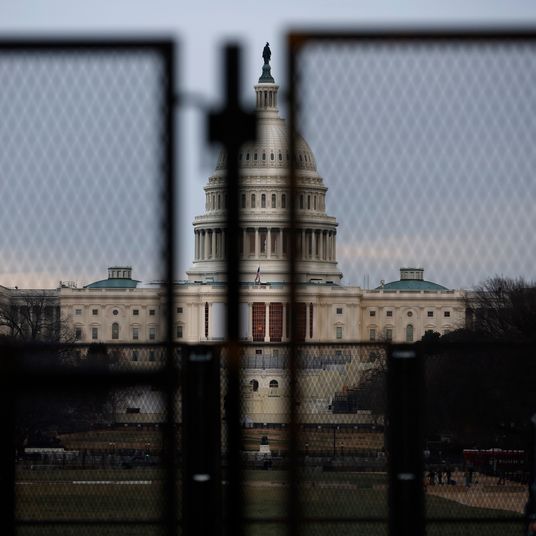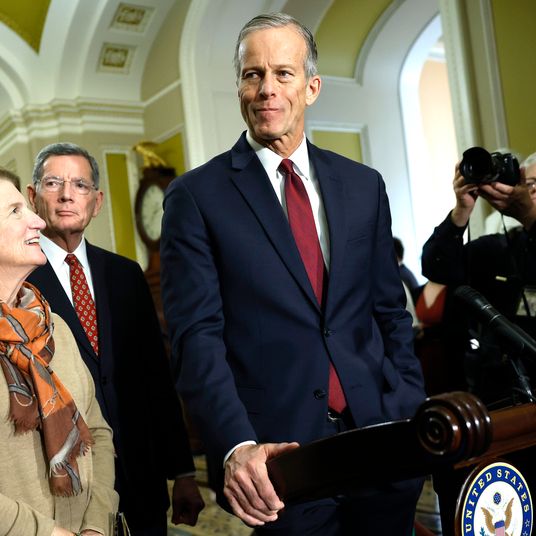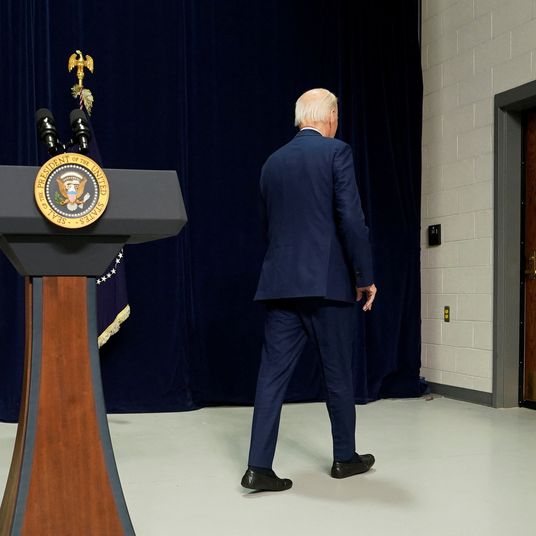
On Monday, Senate Republicans voted against giving the Executive branch the unilateral authority to revoke the constitutional rights of any American citizen it deems a “suspected terrorist.” Senate Democrats responded by accusing their colleagues of treason.
Writers at liberal think tanks shamed Republicans for opposing the further erosion of Americans’ due-process rights.
Even Bernie Sanders — who has given civil-liberties concerns more weight than most elected leaders during our endless war on terror — suggested that barring “potential terrorists” from accessing firearms was a no-brainer.
“Potential terrorists” is an appropriately Orwellian phrase. According to a 2013 document obtained by the Intercept, the Obama administration’s guidelines for branding an individual a suspected terrorist specifically stipulate that “concrete facts” are not required to make that designation. Which may explain why there are more than 800,000 individuals in the Terrorist Screening Database (TSB).
Americans have no recourse for learning whether they are on this master list. The smaller subset of individuals placed on the No-Fly List can contest their inclusion by submitting a written statement, but may not contest the government’s decision at a live hearing before a judge. This lack of transparency and due process makes it impossible to know how many people have had their rights restricted on flimsy grounds — or else by mere bureaucratic error. Multiple reporters have found themselves added to the No-Fly List, ostensibly because of nothing more than their travel habits. And, as Vox’s Dara Lind notes, the government has proven itself less than eager to err on the side of too little surveillance — being acquitted of terrorism charges (or having such charges dismissed) in open court is considered grounds to add someone to the watch list, not to remove them from it.
But Senate Democrats believe that this list isn’t broad enough. Their preferred legislation doesn’t just give the U.S. attorney general the power to bar those in the TSB from procuring firearms, but also anyone who has been the subject of a terrorism investigation at any time in the last five years. This is a dubious standard for revoking (what is currently construed as) a constitutional right. A 2015 study in the Journal of Criminal Law and Criminology found that the FBI’s post-9/11 terrorism investigations were rife with instances of entrapment — undercover agents encouraging disaffected Muslim men to engage in terrorist violence. The Democrats’ standard would ostensibly revoke the Second Amendment rights of American Muslims for the crime of merely being targeted by such efforts; the criterion is not a terrorism conviction or charge, but merely a history of having fallen under the FBI’s suspicious gaze.
Both the NRA and the Senate GOP have framed their opposition to the Democrats’ proposal around concerns of due process. There is obvious hypocrisy in the party that invented the No-Fly List decrying the “no-gun list” as an assault on civil liberties. But just because a position is hypocritical doesn’t mean it’s wrong. Senate Republicans offered an alternative proposal that would have required the government to provide American citizens with an opportunity to challenge their status as a suspected terrorist before a judge within 72 hours of having their gun purchases blocked. Citing the profound logistical difficulties of establishing such a legal process, Democrats voted against the measure.
There is no contradiction between supporting gun control and opposing efforts to expand the government’s authority to revoke rights without due process. On Monday, Senate Minority Leader Harry Reid derided the Republicans’ counter proposals as “political stunts” that would be “meaningless in doing something to stop gun violence.” But the same can be said of the Democrats’ attempt to restrict gun sales to suspected terrorists. Firearm homicides by suspected terrorists who purchased guns illegally account for roughly zero percent of gun deaths in America. Expanding background checks, banning assault weapons, and, in the long term, appointing a Supreme Court willing to overturn District of Columbia v. Heller are worthier goals for gun-control advocates to pursue.
The Democratic Party’s rhetorical focus on the “terror gap” is about politics, not public health. The fact that Republican legislators are prepared to deny a home to Syrian widows and orphans on the basis of national security — but not to deny a suspected terrorist access to deadly weapons — helpfully illustrates the GOP’s maniacal fealty to firearm fetishists. For once, Democrats get to attack Republicans for being “soft on terror.”
But in doing so, liberals emulate their opposition more than they realize. After Orlando, Donald Trump argued that anyone who opposed his plan to drastically curtail American Muslims’ civil liberties was aiding ISIS. On Monday, Elizabeth Warren did the same.






























